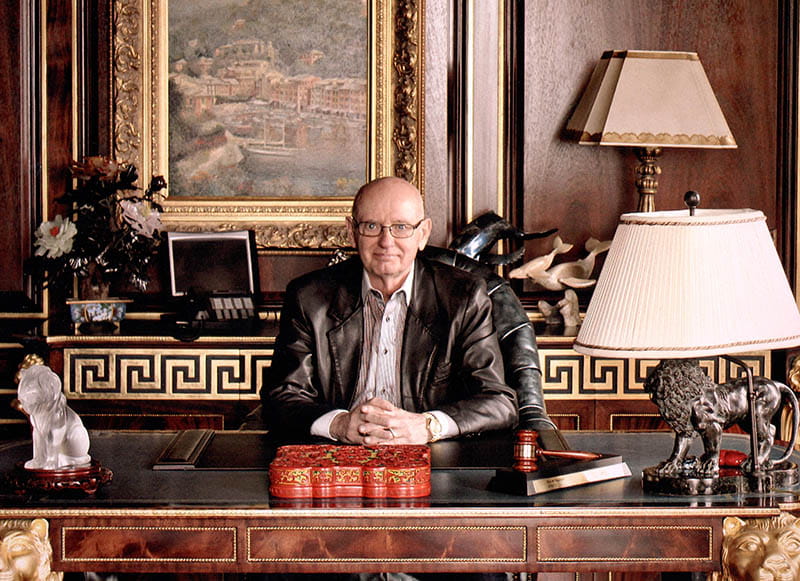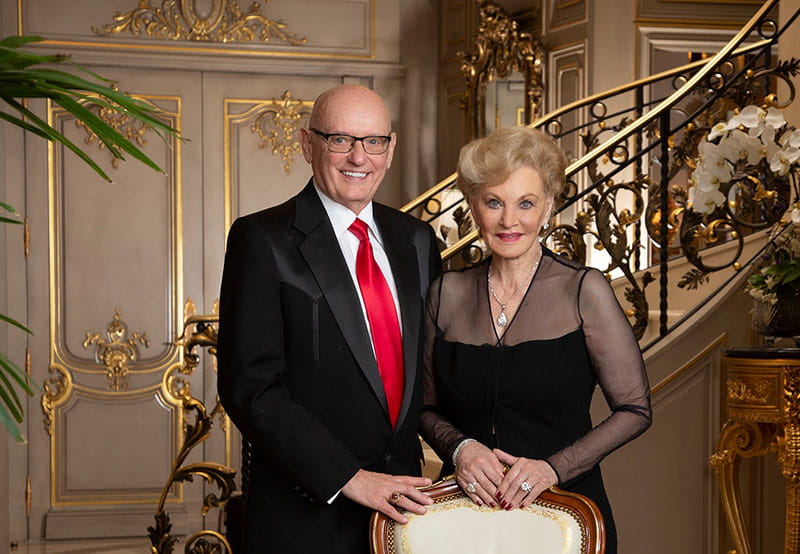Energy executive honored for role in optimizing AHA's business practices and mission impact

Ron Haddock is more than a longtime donor and volunteer for the American Heart Association.
He's practically a living symbol, informing friends, colleagues and many others about the AHA's mission to be a relentless force for a world of longer, healthier lives — all while overcoming his own battles with heart disease.
"It's a 24/7 involvement," Haddock said. "I'm proud of all my work with the AHA and how it's allowed me, in a small way, to help other people."
In recognition of his efforts, the 81-year-old energy industry executive will receive the AHA's 2022 Morgan Stark Memorial Award during the National Volunteer Awards virtual ceremony on June 28. The honor recognizes "an individual who has been an outstanding steward of AHA resources and has provided extraordinary leadership in the areas of human resources, finances or operations of the organization."
Haddock has provided a wealth of business experience and deep insight into how the AHA could maximize the impact of its mission through efficient and effective operations at the local, regional and national levels. For example, he was instrumental in leading the Dallas division to become the AHA's first market to reach $10 million in revenue generation and the No. 1 spot in the country for all three major fundraising events.
In addition, he helped AHA navigate the impact of the pandemic with future-focused strategies that have positioned the AHA as an even stronger organization.
"Ron's guidance continues to advance the organization's thinking to architect new models that support the ever-changing needs of patients and consumers," said Nancy Brown, CEO of the American Heart Association. "Always a true champion for AHA's lifesaving work, Ron's leadership has had a tremendous impact on the organization's direction and success."
It's personal for Haddock. In 2000, when Haddock was asked to join the board of the AHA's Dallas division, he already knew a thing or two about heart health. In the mid-'90s, during a three-mile run, the avid jogger had chest pain due to artery blockages.
After bypass surgery and later a valve replacement surgery, Haddock eventually made a strong recovery.
But his life was changed forever.
As soon as he began his decades-long partnership with the AHA, he became a loyal ambassador, recruiting executives and an array of people to volunteer.
"The American Heart Association is such an outstanding, well-managed organization that just looking at it from a business standpoint, you want to be involved," Haddock said. "You want to be part of this mission of making people's lives better, both in the U.S. and internationally."
During his frequent trips outside the U.S. while working for energy companies, Haddock saw a profound need for better health care around the globe. So, he worked with AHA leaders to partner with health organizations in other countries to develop programs.
"You see a lot of hospitals in under-resourced communities that really need the AHA's Get With The Guidelines program (which provides hospital patients evidence-based quality care)," he said. "You see a lot of people recovering from heart events who need help, too. By partnering with health organizations in countries around the world, the AHA can have a great impact in making people's lives better."
Haddock's deep interest in global health inspired the creation of the Ron Haddock International Impact Award, presented yearly to a person or group significantly impacting the AHA/American Stroke Association's international goals.
In addition to his work with the AHA's international committee, Haddock continues to serve on the organization's National Board and the SouthWest Region board as well as on committees that focus on audit and corporate operations.
He also chairs the Compensation, Benefits and Human Resources Committee, whose goal is "making sure employees have opportunities to grow and develop as individuals and professionals," he said. "For the American Heart Association to be the absolute top-quality organization that it is, you need absolutely top-quality people."
In addition to volunteering his time, Haddock and his wife, Sandi, also gave $1 million to the AHA in 2011 and encouraged other donations through the "Haddock Challenge," which generated another $1 million in contributions.
Even with his busy schedule, Haddock keeps a laser-like focus on his heart health, eating a nutritious diet and working out daily on a treadmill, elliptical machine and stationary bike.

In September, he and Sandi celebrated their 65th wedding anniversary.
"We're stubborn. We're going to keep doing it until we get it right," he joked.
All kidding aside, Haddock hopes his longevity and experiences with heart disease inspire others to take their health more seriously.
"My advice is No. 1: Know your numbers — your blood pressure, heart rate, etc.," he said. "No. 2: Adopt good cardiovascular habits: Don't smoke, pay attention to what you eat and exercise.
"Unfortunately, so many young people get so busy with their careers and their family they don't pay enough attention to their own health. But you've got to put it at the top of your most important things. Heart disease is the No. 1 killer. Put the same focus on your health as you do on your career."





